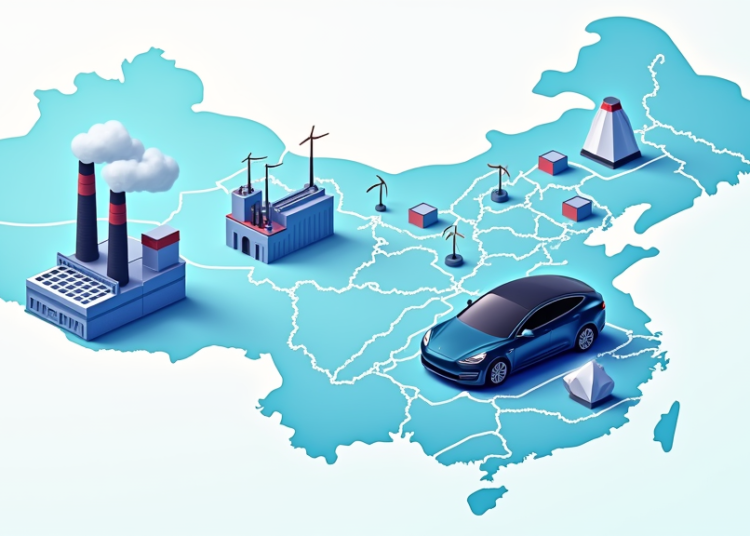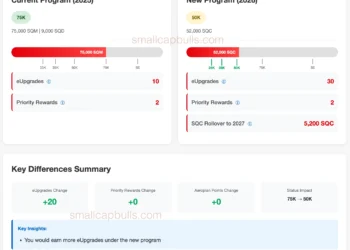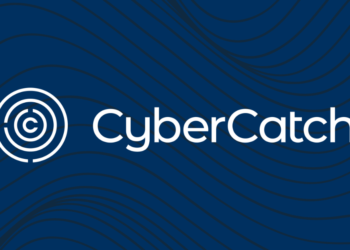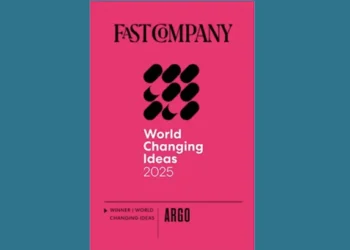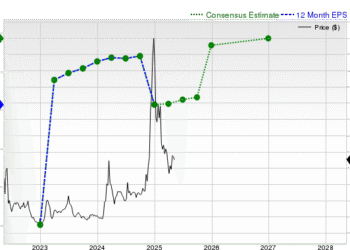Panasonic Energy, a key player in the electric vehicle battery sector, is making significant strides to reduce reliance on China for its U.S. battery supplies. As a major supplier for Tesla, Panasonic Energy has identified this strategic shift as its “No. 1 objective,” signaling a proactive response to the evolving electric vehicle market competition. The company aims to bolster its manufacturing capabilities within the United States, including plans for a new Panasonic factory in Kansas, which is set to enhance its production capacity. This initiative comes at a time when geopolitical tensions have prompted many companies to reassess their supply chains, especially in light of increased tariffs on Chinese imports. Ultimately, Panasonic Energy’s efforts to diversify its battery supply chain will not only support Tesla but also strengthen its position in the rapidly growing EV market.
In the realm of renewable energy solutions, Panasonic Energy is focusing on enhancing its supply chain resilience by minimizing its dependency on Chinese battery imports for electric vehicles. As a prominent contributor to Tesla’s production line, the company’s shift aims to fortify its manufacturing presence in the U.S., particularly with the anticipated establishment of a new manufacturing hub in Kansas. This pivot is crucial as competition within the electric vehicle segment intensifies, with various manufacturers vying for market dominance. By adopting a more localized approach to battery production, Panasonic Energy seeks to navigate the challenges posed by international trade dynamics while ensuring a steady supply of essential components for electric vehicles. This strategic realignment reflects broader industry trends aimed at ensuring sustainability and security in battery supplies.
Panasonic Energy’s Strategic Shift in Battery Production
Panasonic Energy is making a significant move to reshape its battery production strategy, particularly in response to the growing tensions surrounding international trade and supply chains. As one of Tesla’s main suppliers, they have recognized the critical need to reduce reliance on China for their electric vehicle (EV) battery supplies. This shift is not just a reaction to tariff increases but a proactive strategy to safeguard their operations against potential disruptions in the supply chain. Allan Swan, the President of Panasonic Energy of North America, has emphasized that this transition is their ‘No. 1 objective,’ highlighting the urgency and importance of this initiative for the company’s future in the competitive EV market.
The emphasis on reducing reliance on China is particularly crucial given the current dynamics in the EV market, where competition is intensifying. By diversifying their manufacturing locations, particularly with the planned opening of a new battery factory in Kansas, Panasonic aims to strengthen its position against competitors who are also vying for dominance in the EV sector. This strategic realignment not only mitigates risks associated with geopolitical issues but also positions Panasonic Energy to better serve its customers, including Tesla, amidst fluctuating market demands.
Impacts on the U.S. Electric Vehicle Market
The decision by Panasonic Energy to reduce its dependency on Chinese battery supplies is poised to have significant implications for the U.S. electric vehicle market. As companies like Panasonic diversify their supply chains, it could lead to increased domestic production capabilities, fostering innovation and competition within the industry. This move is essential for enhancing the overall resilience of the EV market, particularly as manufacturers face challenges related to supply chain disruptions and rising costs. It also aligns with broader governmental initiatives aimed at bolstering domestic production of critical components, such as EV batteries.
Moreover, the shift by Panasonic Energy comes at a time when the EV market is experiencing fierce competition, particularly from Chinese manufacturers like Nio and BYD. These companies have been aggressively offering incentives to consumers, making it imperative for U.S. manufacturers to remain agile and competitive. By investing in local production facilities, Panasonic not only strengthens its collaboration with Tesla but also contributes to the growth of the U.S. EV market, ensuring that American consumers have access to high-quality, domestically-produced batteries.
Challenges in Reducing Supply Chain Reliance
While Panasonic Energy’s strategy to reduce reliance on China is commendable, it is not without its challenges. The transition to a more localized supply chain requires significant investment in infrastructure and workforce development. Establishing a new factory in Kansas, for instance, involves logistical considerations, from sourcing materials to training skilled labor. Furthermore, the current geopolitical climate poses uncertainties that could complicate these initiatives, necessitating a robust risk management plan to navigate potential setbacks.
Additionally, as Panasonic reconfigures its supply chain, it must also contend with maintaining cost competitiveness in the face of increasing material costs. The ongoing electric vehicle battery price war is exerting pressure on manufacturers to keep prices low while ensuring high quality. Balancing these factors will be essential for Panasonic Energy to solidify its position not only as a supplier to Tesla but also as a key player in the overall EV market landscape.
Future Prospects for Panasonic Energy in the EV Market
Looking ahead, Panasonic Energy’s decision to diversify its supply chain may open new avenues for growth within the electric vehicle market. By establishing a manufacturing footprint in the U.S., the company is positioning itself to capitalize on the increasing demand for electric vehicles, particularly as consumers and governments shift towards more sustainable transportation options. The planned Kansas factory is expected to ramp up production, potentially allowing Panasonic to meet the growing needs of various automotive manufacturers beyond Tesla.
Furthermore, as Panasonic continues to innovate in battery technology, the company could play a pivotal role in shaping the future of electric vehicle performance and efficiency. With advancements in battery chemistry and production techniques, Panasonic aims to enhance the overall driving experience for consumers, which is vital in maintaining competitiveness against rivals. This forward-thinking approach, coupled with strategic investments in domestic facilities, could solidify Panasonic Energy’s status as a leader in the evolving landscape of electric mobility.
The Role of Panasonic Energy in Global Battery Supply Chains
Panasonic Energy plays a crucial role in the global battery supply chain, particularly as the demand for electric vehicles surges worldwide. As a key supplier to Tesla and other automotive manufacturers, the company is instrumental in ensuring a steady supply of high-quality batteries essential for powering the next generation of electric vehicles. By shifting its focus to local production, Panasonic aims to enhance the reliability of its supply chain while contributing to the resilience of the broader EV ecosystem.
This strategic pivot not only benefits Panasonic but also has far-reaching implications for the automotive industry as a whole. By reducing reliance on Chinese suppliers, Panasonic Energy is setting a precedent for other companies in the EV sector to follow suit. This could lead to a more balanced and geographically diverse supply chain, ultimately fostering competition and innovation within the industry. As manufacturers increasingly prioritize sustainability and local sourcing, Panasonic’s efforts could pave the way for a more robust and efficient battery supply chain globally.
Geopolitical Influences on Panasonic’s Strategy
The geopolitical landscape significantly influences Panasonic Energy’s strategy to minimize reliance on China for battery supplies. Heightened tensions between the U.S. and China, particularly in trade relations, have prompted many companies to reevaluate their supply chains to mitigate risks associated with potential tariffs and trade barriers. Panasonic’s commitment to establishing a factory in Kansas reflects a broader trend among global manufacturers seeking to secure their operations against geopolitical uncertainties.
In this context, Panasonic Energy’s strategy not only aims to safeguard its own interests but also aligns with national goals of enhancing domestic production capabilities. By investing in local manufacturing, Panasonic is contributing to a more self-sufficient battery supply chain in the U.S., which is vital for supporting the growing electric vehicle market. This proactive approach can help mitigate risks associated with dependency on foreign suppliers, ensuring a more stable and resilient supply chain for Tesla and other automotive producers.
Tesla’s Relationship with Panasonic Energy
The relationship between Tesla and Panasonic Energy is fundamental to the success of both entities in the electric vehicle market. As one of Tesla’s primary battery suppliers, Panasonic provides the essential power storage solutions that enable Tesla’s innovative vehicles to perform at their best. This partnership has been pivotal in Tesla’s growth, allowing the company to scale production and meet the increasing demand for electric vehicles.
As Panasonic Energy pivots its strategy to reduce reliance on China, this relationship could become even more critical. By establishing a more robust domestic supply chain, Panasonic can ensure a consistent and reliable flow of batteries to Tesla, which is essential as the company navigates an increasingly competitive landscape. This collaboration not only strengthens Tesla’s supply chain but also enhances Panasonic’s position as a leading supplier in the rapidly evolving EV market.
Impact of Chinese Competition on Panasonic’s Strategy
The rise of Chinese competitors in the electric vehicle market has significantly influenced Panasonic Energy’s strategic decisions. Companies like BYD and Nio have rapidly expanded their presence, offering attractive pricing and incentives that challenge established players like Tesla. This intensifying competition underscores the importance for Panasonic to diversify its supply chain and minimize its dependence on Chinese manufacturing to maintain its competitive edge.
By reducing reliance on China, Panasonic Energy is positioning itself to better compete against these emerging threats. The establishment of a new factory in Kansas not only bolsters its production capabilities but also allows for greater agility in responding to market changes. As Panasonic aims to innovate and improve its battery technology, this strategic shift will be crucial in ensuring its continued relevance in an increasingly crowded EV landscape.
Panasonic Energy’s Commitment to Sustainable Practices
As Panasonic Energy prepares to expand its manufacturing operations in the U.S., its commitment to sustainable practices remains a core component of its strategy. The shift towards reducing dependence on China is not solely about mitigating geopolitical risks; it also reflects a broader commitment to sustainability and environmental responsibility. By localizing production, Panasonic can reduce transportation emissions and support a more sustainable battery supply chain.
This focus on sustainability aligns with the growing consumer demand for environmentally friendly products and practices. As electric vehicles become more popular, consumers are increasingly seeking out brands that prioritize sustainability at every level of production. Panasonic Energy’s efforts to establish a factory in Kansas with a focus on sustainable practices will not only enhance its reputation but also contribute to the overall goals of reducing carbon footprints and promoting greener technologies within the EV market.
Frequently Asked Questions
How is Panasonic Energy reducing reliance on China for electric vehicle batteries?
Panasonic Energy is actively working to reduce its dependence on China by diversifying its supply chain and establishing new manufacturing facilities in the U.S., including a factory in Kansas. This strategic move is part of their commitment to enhance battery supply for the electric vehicle (EV) market while mitigating risks associated with geopolitical tensions.
What is Panasonic Energy’s role in the Tesla battery supply chain?
As a major supplier for Tesla, Panasonic Energy plays a critical role in the Tesla battery supply chain by providing high-quality electric vehicle batteries. Their collaboration is essential for supporting Tesla’s production goals and enhancing the overall performance of their EVs.
Why is reducing reliance on China important for Panasonic Energy?
Reducing reliance on China is vital for Panasonic Energy to mitigate risks related to trade policies and geopolitical conflicts. By diversifying their supply chain, they aim to ensure a stable supply of electric vehicle batteries, especially in light of increasing competition in the EV market.
What are the implications of Panasonic Energy’s new factory in Kansas?
The new Panasonic factory in Kansas is significant as it represents the company’s commitment to increasing domestic battery production for electric vehicles. This facility will help bolster the U.S. EV market by providing local supply, reducing reliance on imports, and enhancing competitiveness against other global manufacturers.
How does Panasonic Energy’s strategy affect competition in the EV market?
Panasonic Energy’s strategy to reduce dependence on China and increase local battery production will bolster its position in the competitive EV market. By ensuring a stable and reliable supply of batteries, Panasonic can better support automakers like Tesla, especially amid heightened competition from Chinese manufacturers offering aggressive pricing and incentives.
What challenges does Panasonic Energy face in the EV market competition?
Panasonic Energy faces challenges in the EV market competition primarily from Chinese manufacturers who are aggressively cutting prices and offering incentives. This competitive landscape requires Panasonic to innovate and improve efficiency while expanding its production capabilities in the U.S.
What is Panasonic Energy’s main objective regarding U.S. battery supplies?
Panasonic Energy’s main objective regarding U.S. battery supplies is to reduce its reliance on China. This goal is driven by the need to secure a stable supply chain for electric vehicle batteries in the face of increasing tariffs and geopolitical uncertainties.
How does Panasonic Energy’s decision impact Tesla’s operations?
Panasonic Energy’s decision to reduce reliance on China for battery supplies positively impacts Tesla’s operations by ensuring a more stable and reliable battery supply chain. This is crucial for Tesla, as it continues to expand its production and meet the growing demand in the electric vehicle market.
What are the future plans of Panasonic Energy in the context of EV batteries?
Panasonic Energy plans to expand its production capabilities in the U.S. with the opening of a new factory in Kansas. This initiative aligns with their goal of lessening dependence on China and enhancing their role as a leading supplier of electric vehicle batteries in the competitive market.
How does Panasonic Energy’s shift in strategy align with industry trends?
Panasonic Energy’s shift to reduce reliance on China aligns with broader industry trends of diversifying supply chains due to geopolitical tensions and trade policies. This strategy reflects a growing recognition among manufacturers of the need to secure reliable sources for critical components like electric vehicle batteries.
| Key Point | Details |
|---|---|
| Objective | Reduce reliance on China for U.S. battery supplies. |
| Leadership Statement | Allan Swan, President of Panasonic Energy of North America, emphasized this as the company’s ‘No. 1 objective.’ |
| Context | The decision follows increased tariffs on Chinese imports, prompting a reevaluation of supply chains. |
| Current Operations | Panasonic operates a battery facility in Nevada and plans to open another factory in Kansas. |
| Market Competition | The move is crucial as competition intensifies in the EV market, with Chinese companies offering incentives. |
| Industry Trends | This initiative aligns with industry-wide trends to diversify supply chains amidst geopolitical tensions. |
Summary
Panasonic Energy is taking significant steps to reduce its reliance on China for battery supplies, which is crucial for its role as a major supplier for Tesla. This strategic pivot not only seeks to mitigate risks associated with geopolitical tensions but also positions Panasonic Energy competitively in the evolving electric vehicle market. As the industry faces intense competition and changing tariffs, Panasonic’s commitment to localize production reflects a proactive approach to securing its supply chain and maintaining leadership in battery technology.
